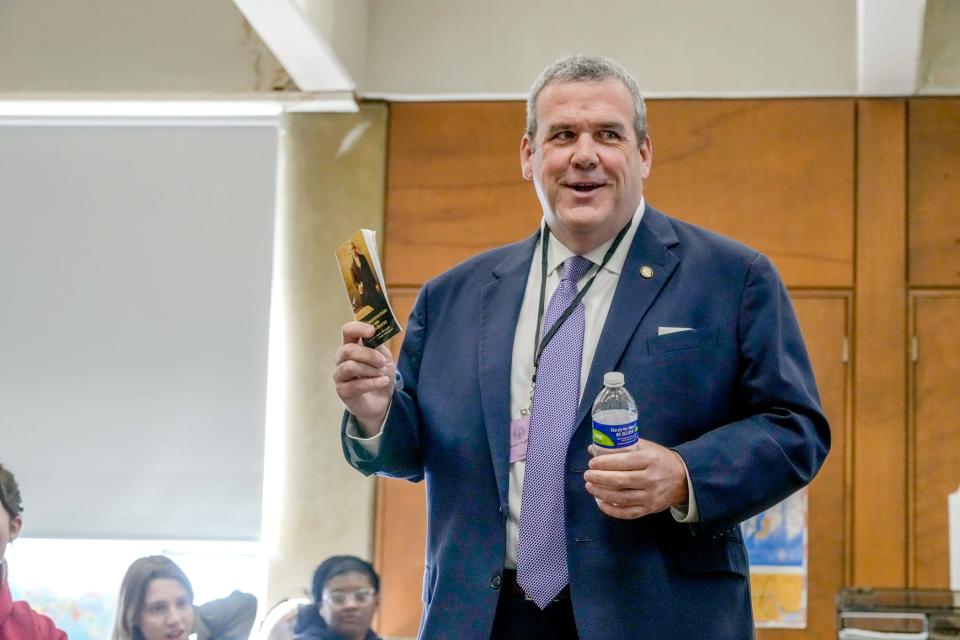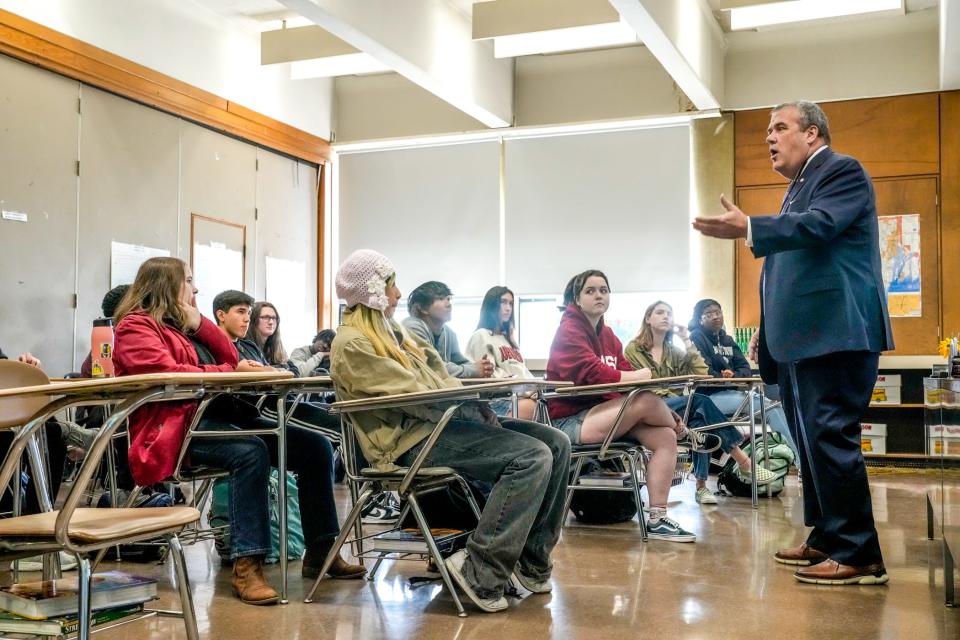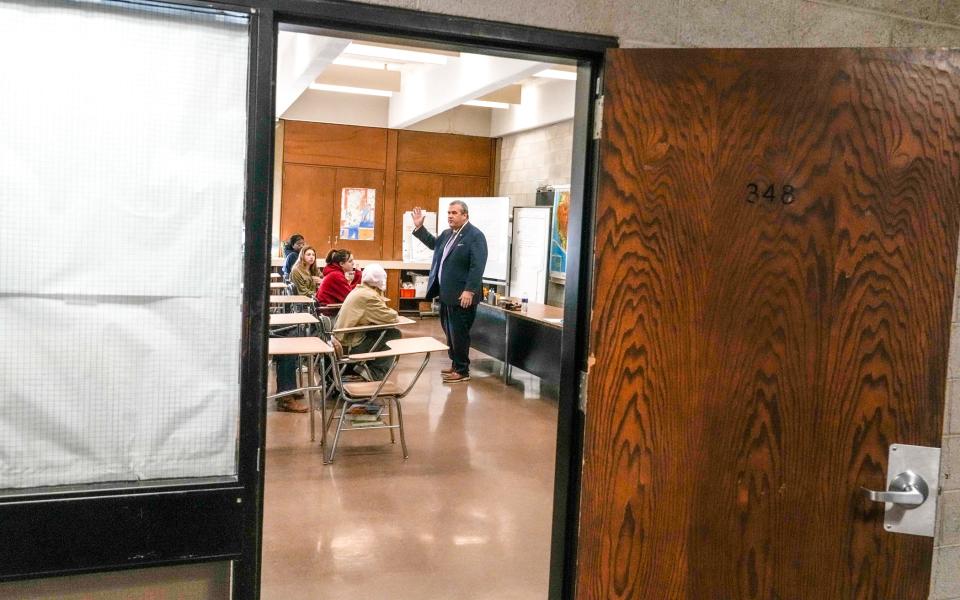Why Secretary of State Amore and his pocket Constitution are touring RI classrooms
- Oops!Something went wrong.Please try again later.
PROVIDENCE – One morning late last week, Secretary of State Gregg Amore wasn't in his office. He was in the classroom.
Reprising his role as a civics teacher, Amore stood before several rows of Classical High School students at desks and rattled off a series of numbers: 15, 19, 24, 26. He asked, "What are those?"
A few brows furrowed. A couple curious glances were exchanged.
Amore answered his own question: constitutional amendments that secured and strengthened voting rights for women and minorities. He then whipped out a pocket-sized version of the document, something he stashes in a convenient spot, as one would keep a pen handy.
Amore has made about 10 such presentations at various schools since March and is booked through the rest of the year. It's not necessarily a new gig for a guy who taught civics at East Providence High School for nearly three decades before becoming secretary of state. Yet still, he's on a mission: Get kids a better civics education, get them registered to vote and get them to see that voter suppression isn't a thing of the past.

Report finds deficiencies in civics education in RI
For this job, Amore is a natural. During his time as a state representative, he helped to pass the Civic Literacy Act in 2021, which pushes public schools to improve their civics curriculums. A 2022 report from Tufts' Center for Information and Research on Civic Learning and Engagement found that civics education in Rhode Island's public schools was in less than stellar shape.
Nearly a quarter of teachers and administrators said civics wasn't a big priority, and fewer than half of teachers said their districts had standalone civics classes.
More: What's next for Secretary of State-elect Amore? He wants same-day voter registration
"When it came to specific support that districts may or may not be providing, teachers reported a lackof time, training and resources for teaching civics," the report read. "More than half (55%) of teachers said they don’t have access to civics-related professional development opportunities, and 36% of administrators alsosaid there was not access to civics professional development in their district."
Amore sees fixation on state exams as one of the obstacles to a serious civics education.
"Every time I have conversations with folks about the role of government, even the Department of State, I'm disappointed," he said. "So my guess is that the civics gap we have is not relegated to our students, and there's a lot of reasons for that. One is that … there's been a real move toward standardized testing. And so in the elementary schools where social studies used to be a kind of standalone piece of the curriculum, I think it got placed on the back burner because there was so, so much focus on math and ELA scores."
'Democracy in peril': Agreement seeks to bolster civics education in RI public schools

Amore worries discussions may be muted 'out of fear'
In that Classical High School classroom, Amore doesn't just focus on the past – he asks students about the present. Where had they seen voter suppression in the news? In the South, in the form of poll watchers and restricted access to drop boxes that make it easier for voters to cast their ballots.
Yet the honest teaching of history and disenfranchisement has become a political lightning rod, even in Rhode Island, where bills to limit how history is taught – and whose history is heard – have been filed in the State House, despite having a slim chance at passage.
More: RI lawmakers hear impassioned debate on bill to limit teaching of racism, gender identity
"I'm actually worried about our teachers because … they should be able to freely discuss ideas without pushing ideas, and spark critical thinking," Amore said. "And I think a lot of the conversation around restrictions as to what can and can't be taught mutes that discussion out of fear, and then in turn doesn't allow our students to critically think."
A reboot for Project Insight? Amore wants to revive it.
This isn't all Amore has on his plate. He envisions rebooting Project Insight, which launched in the 1970s. The program is a Rhode Island version of Project Close Up, which puts students in the nation's capitol for a short stay so they can meet lawmakers, immerse themselves in government and learn how to become engaged citizens. The local version would do all of that at the State House.
Amore also wants to encourage schools to expand one-day voter registration programs to 180-day initiatives that would allow kids to learn how to sign up year 'round. At each school he visits, Amore recruits students who can be involved in those efforts and others, asking them to be liaisons for his office.

Nearing the end of an interview that stretched 40 minutes, Amore ticked off an ambitious to-do list that includes a new history museum for Rhode Island. He joked that he never leaves the office.
That is, unless he goes back to school.
"I think I'm an optimist because I spent my entire career with high school kids," he said. "Maybe after four years here with all these adults, I'll lose my optimism. But I'm still in classrooms, so I do think we have the capacity to right the ship and come back to the middle."
This article originally appeared on The Providence Journal: RI secretary of state wants better civics education in RI schools

